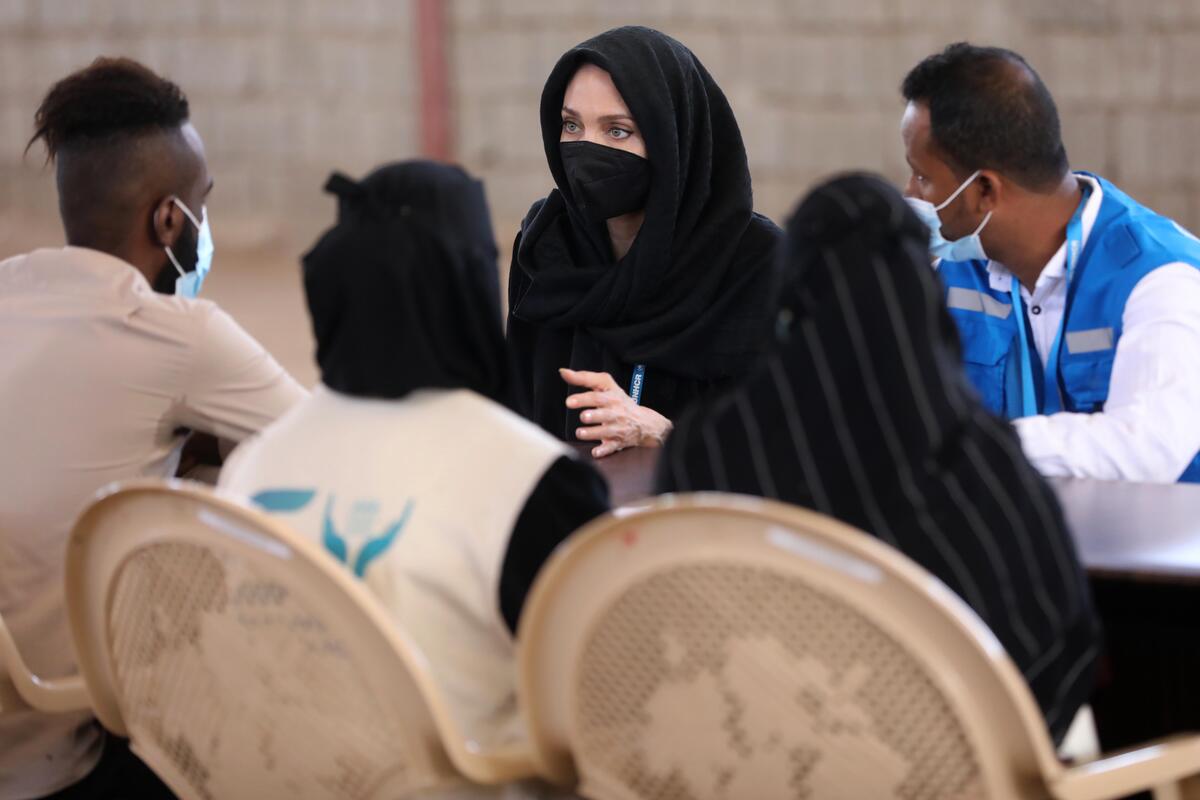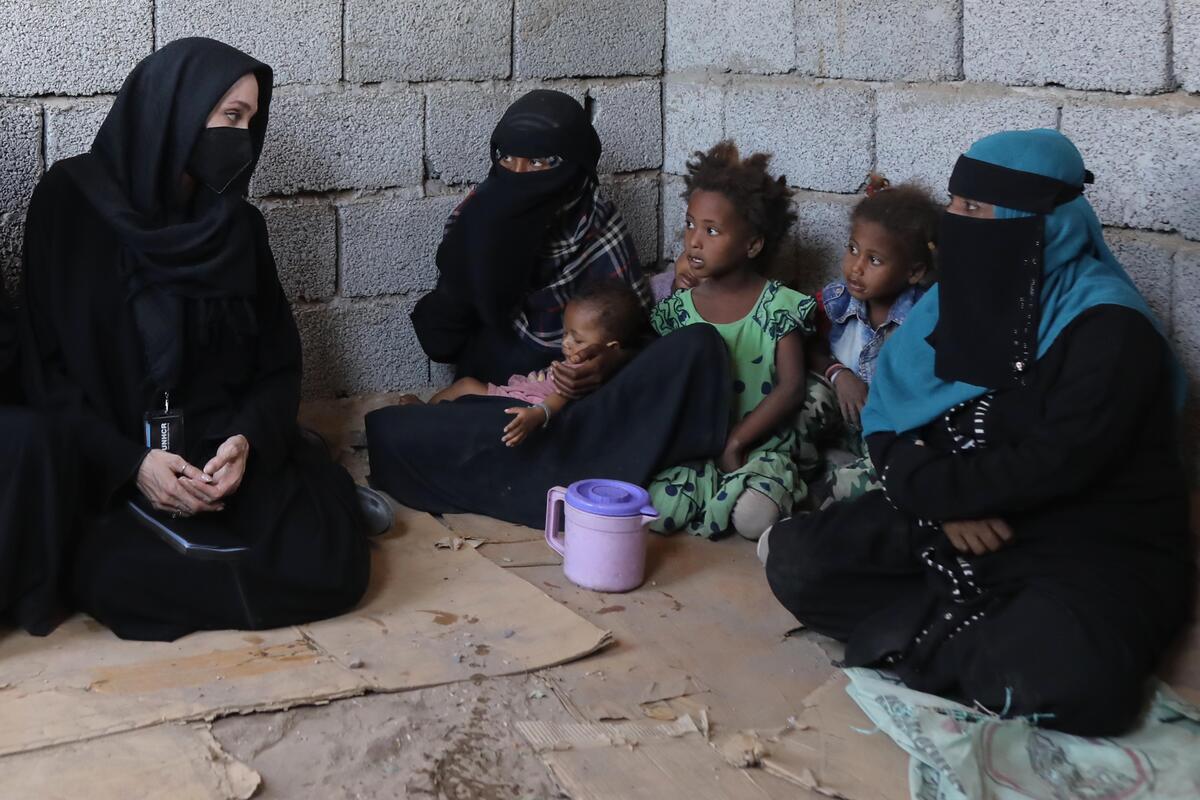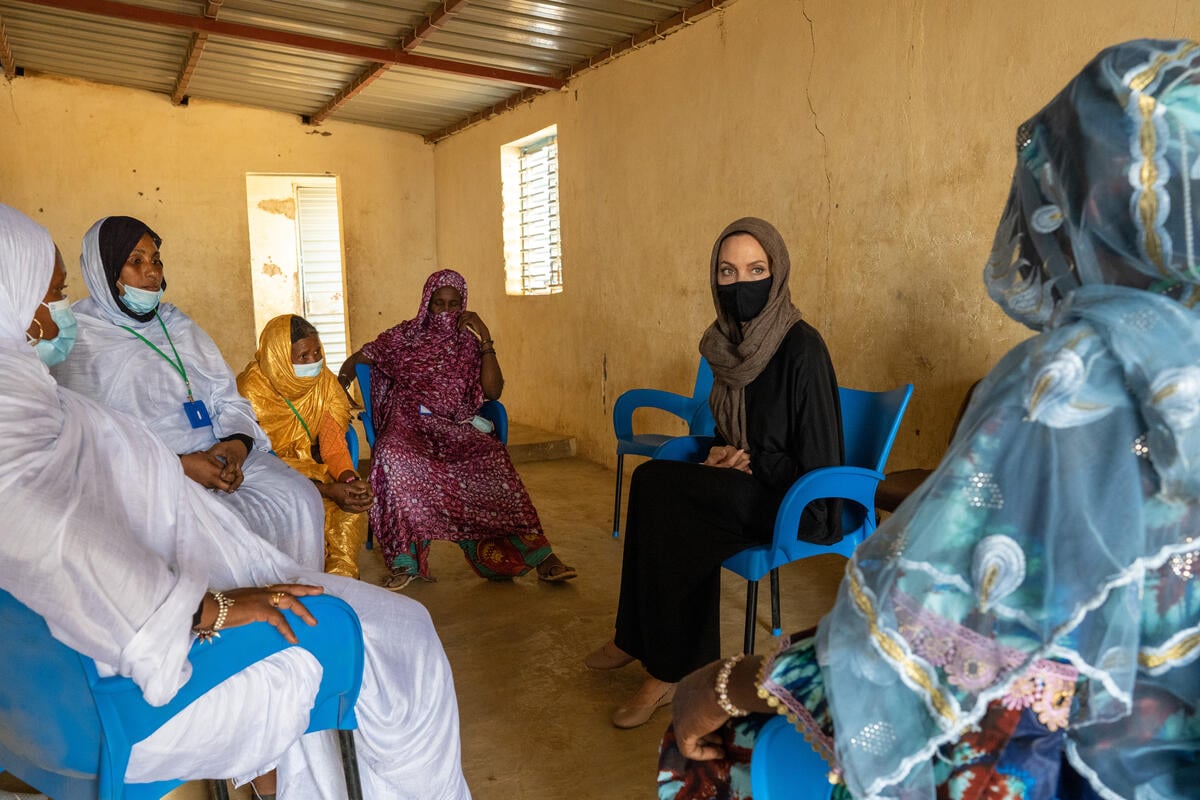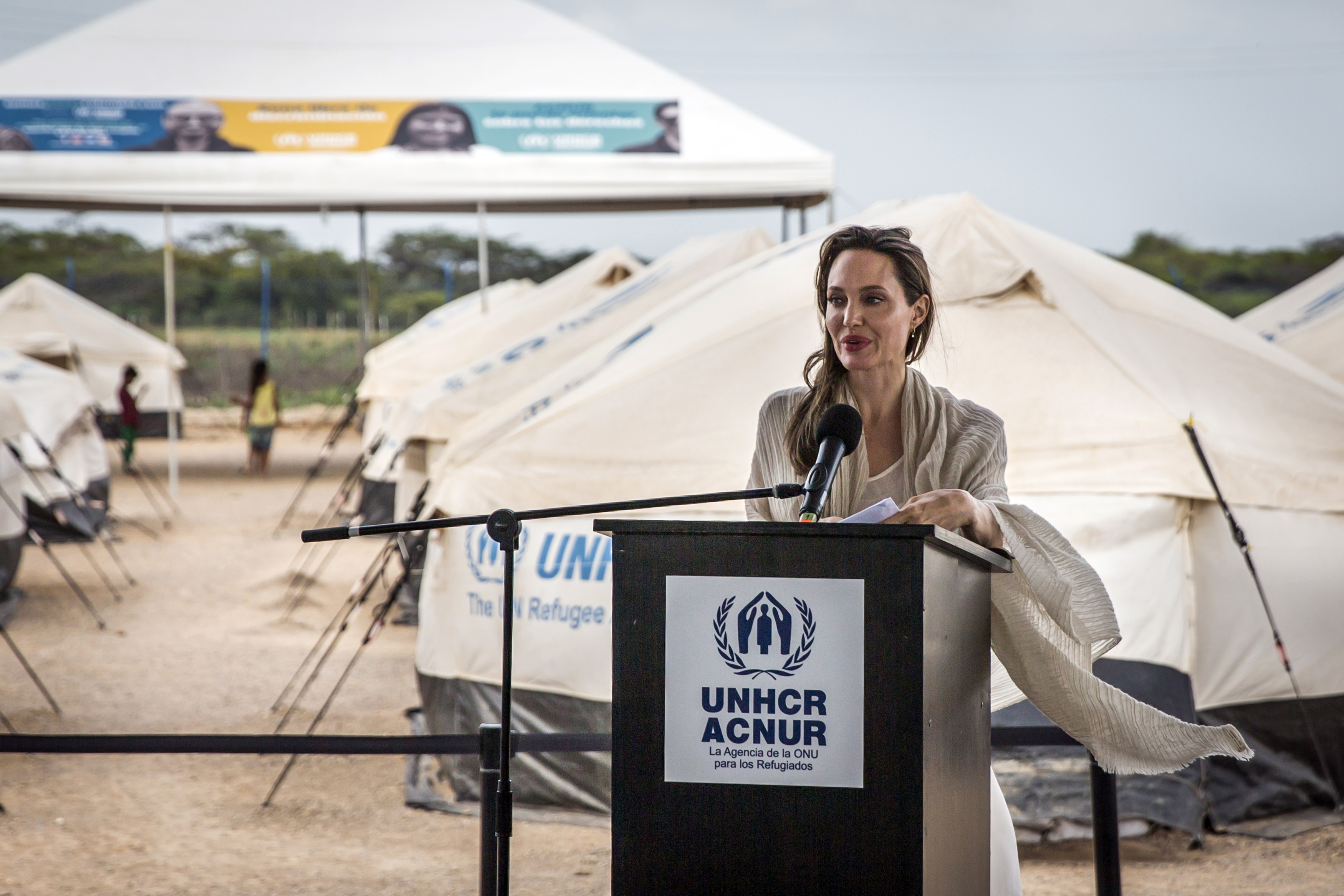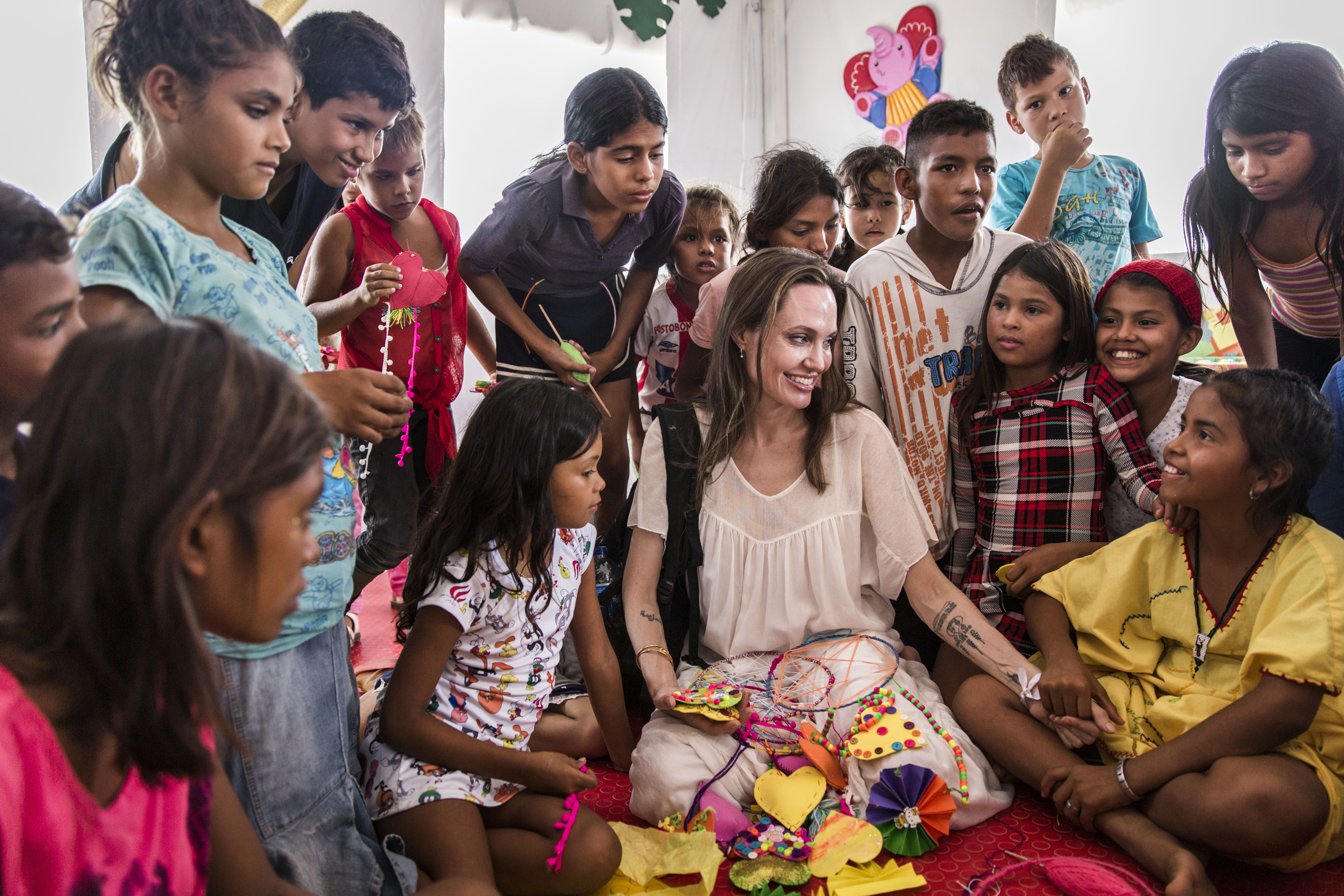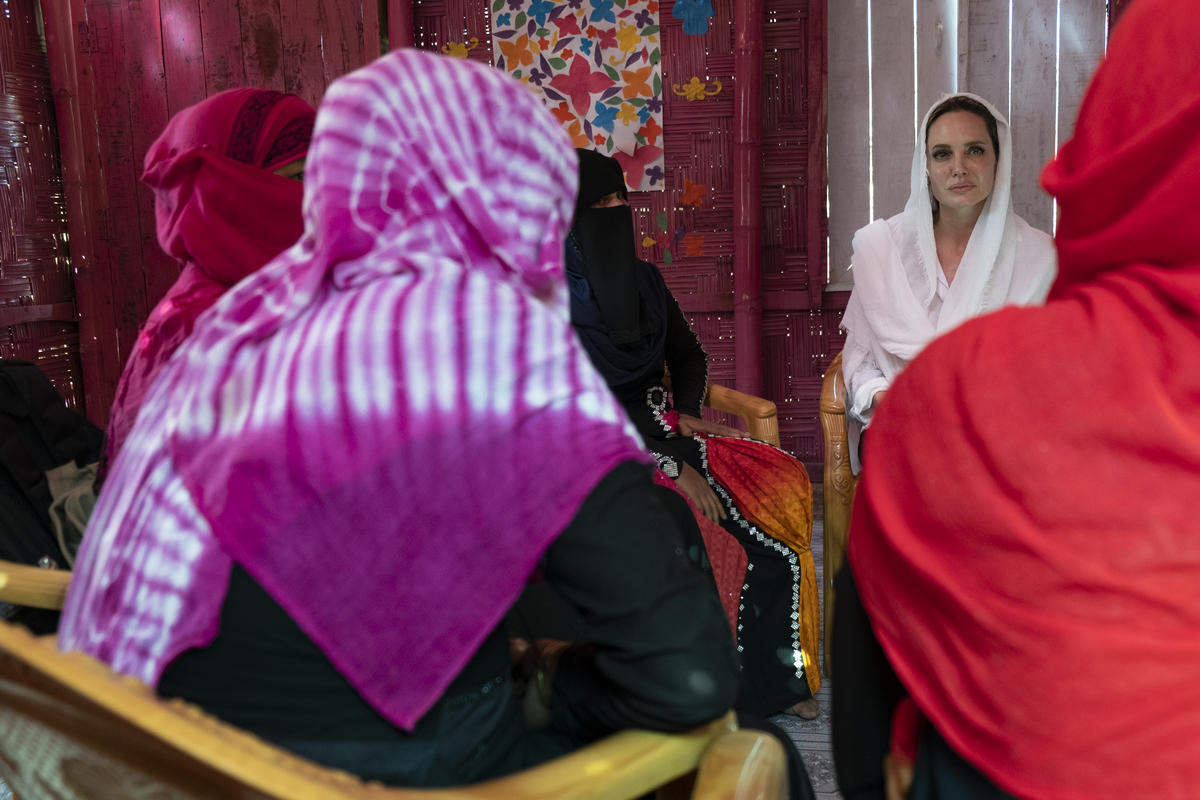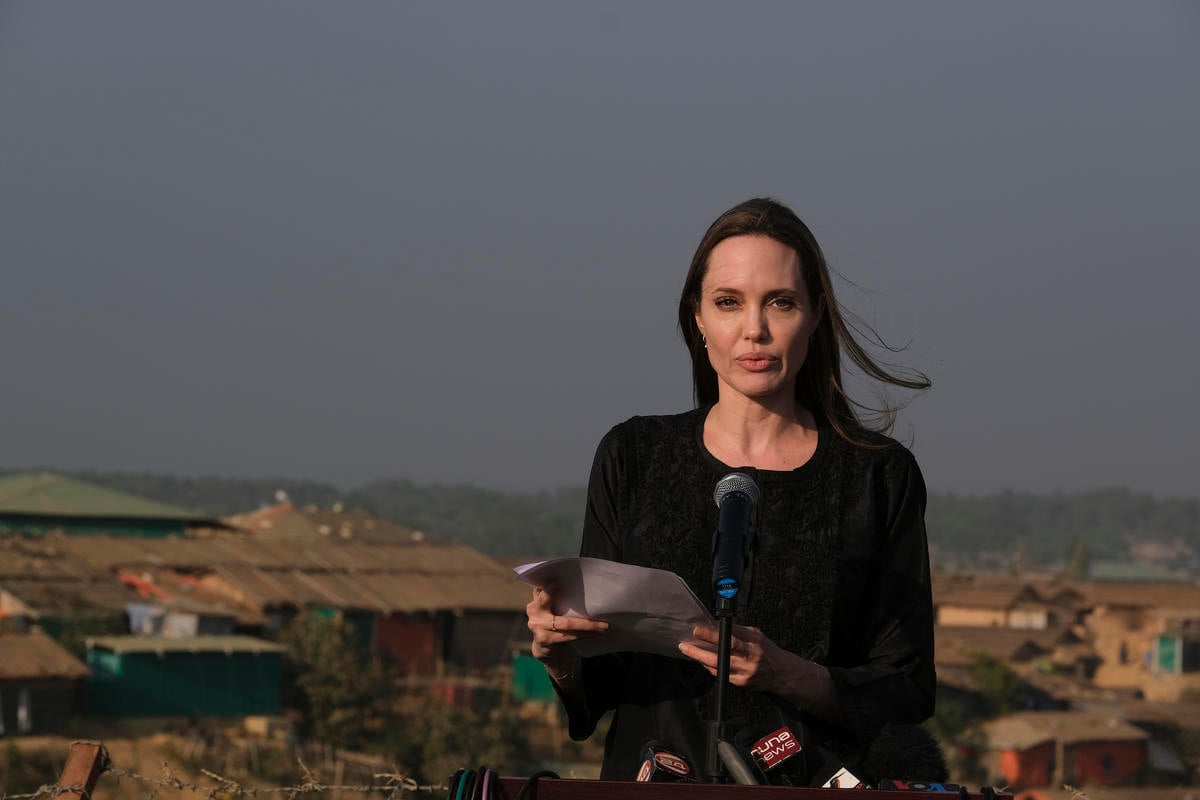Angelina Jolie, business leaders help UNHCR improve life for world's refugees
Angelina Jolie, business leaders help UNHCR improve life for world's refugees
27 January 2005
DAVOS, Switzerland, Jan. 27 - UNHCR Goodwill Ambassador Angelina Jolie today called on business and political leaders meeting at the World Economic Forum in Davos to use their influence to keep refugee issues at the top of the international agenda.
The Oscar-winning actress was speaking in support of the UN refugee agency's Deputy High Commissioner, Wendy Chamberlin, who was announcing the formation of a Council of Business Leaders - an initiative intended to boost UNHCR's efforts to address the plight of innocent people forced to flee their homes.
"If there's been one positive thing to come out of the immense tragedy of the tsunami, it is the amazing response by people and organizations across the world," said Ms. Jolie, who has worked for refugees over the past four years in Asia, Africa, the Americas and Europe.
"Everyone was horrified, and so many have tried to do their bit to help out," she added. "What we need now is for this momentum, and this generosity, to be translated into a sustained effort to help solve some of the world's other neglected crises, like the desperate situation in Chad and Sudan."
UNHCR's Council of Business Leaders, set up by U.N. High Commissioner for Refugees Ruud Lubbers, consists of top executives from five major corporations that are working together with the refugee agency to improve opportunities for refugees: Merck & Co, Inc., Microsoft, Nestlé, Nike and PricewaterhouseCoopers.
"The world leaders who are gathered here at Davos - politicians, media leaders and business executives - need to recognize that UNHCR cannot solve refugee problems in isolation," Ms. Chamberlin said. "Thankfully, some companies now see that UNHCR is able to empower refugees and returnee communities. When corporations help address the plight of refugees and returnees, they contribute to the development of more stable societies - and more stability is clearly good for business. There's scope for a virtuous circle here."
Microsoft and UNHCR have worked in partnership for five years, developing solutions to register and reunite refugees, supporting retraining programmes and now providing education through computer learning centres. Nike and PricewaterhouseCoopers are helping improve refugee girls' access to education.
In the first year of a programme that uses sports to boost girls' self-esteem and encourage them to stay in school, 1,000 more children have begun going to class in UNHCR's Dadaab camp in north-eastern Kenya. Merck has helped UNHCR and the International Council of Nurses introduce Mobile Health Libraries that benefit both local communities and refugee camps in Tanzania. Nestlé is helping UNHCR improve a major water treatment facility and distribution system that is to be handed over to the local community when UNHCR closes its camps in eastern Ethiopia this year.
"With the involvement of our existing corporate partners, this Council will pave the way for ground-breaking, leading-edge partnerships between the United Nations and private sector corporations," said Ms. Chamberlin, who will chair the Council.
"The recent outpouring of aid for survivors of the Dec. 26 tsunami illustrated very well the value of corporations and aid agencies working together," she added. "But we need a continuous, long-term relationship to really address the many challenges faced by the world's refugees and those of us trying to help them."
The role of the Council is to provide UNHCR with a network of innovative business leaders to generate further private sector support. The Council will advise UNHCR on its strategies to best catalyze innovative public-private partnership partnerships, and will help the refugee agency find sources of private-sector funding to complement the funds it receives in voluntary contributions from governments - funds that often cover only basic needs.
The theme for this year's World Economic Forum (26-30 Jan.) is "Taking Responsibility for Tough Choices," a theme Ms. Jolie linked to the desperate people around the world who are close to her heart.
"Refugees don't have the luxury of choice," she said. "They flee to save their lives. They are confronted with the toughest possible decision - to leave behind everything they have and everything they know - because of factors out of their control. It's up to all of us to help them. Right now, so many of them get so little help from so few of us - and that is something we can choose to change. It's not even that tough a choice."
Ms. Jolie, who has travelled to some 20 countries on missions for UNHCR - meeting with refugees, working with UNHCR field workers and actively advocating the protection of refugee in meetings with national and community leaders - will be the guest of honour at a reception Thursday (27 Jan.) hosted by Ms. Chamberlin.
Ms. Chamberlin and Ms. Jolie will hold a press conference Saturday 29 Jan. in the lower-level Press Conference Room at the Davos Congress Centre from 14:15 -14:45.

